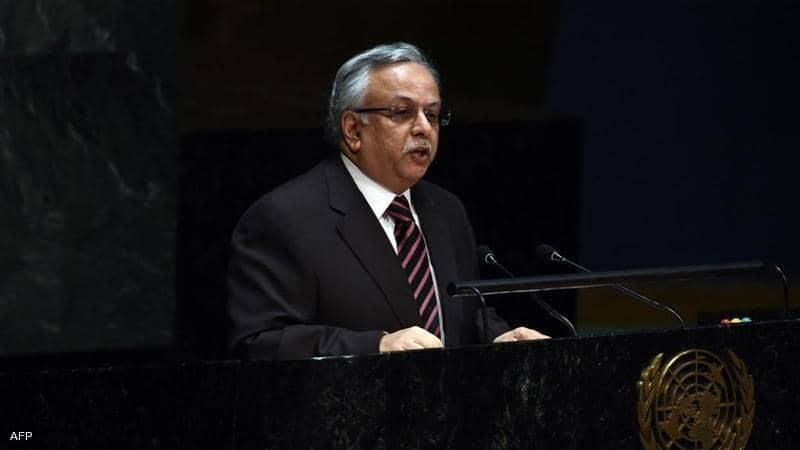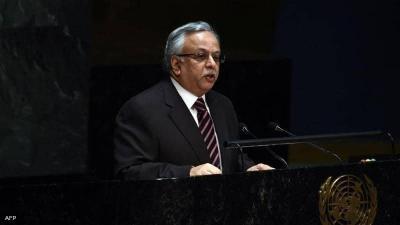Saudi Arabia has called on Iran to engage seriously in ongoing nuclear negotiations, avoiding escalation and further jeopardizing the security and stability of the region. Saudi Arabia emphasized the need for the international community to reach an agreement with stronger and longer-lasting parameters, along with implementing monitoring and oversight measures to prevent Iran from acquiring nuclear weapons and developing the necessary capabilities. It stressed the importance of considering the profound concerns of regional countries regarding Iran's escalatory steps, which undermine regional security and stability, including its nuclear program.
This was stated in a speech delivered by the Kingdom before the UN Security Council during a session held yesterday, Thursday, via video conference, under the agenda item "The situation in the Middle East, including the Palestinian question," presented by the Kingdom's Permanent Representative to the United Nations, Ambassador Abdullah Al-Mualimi.
Regarding the Palestinian issue, Al-Mualimi noted that April 17 marked Palestinian Prisoners Day, highlighting it as an example of Israeli hostile policies against the Palestinian people, which have significantly undermined the peace process and the path to a two-state solution. He pointed out that the latest of these policies was the Israeli forces' assault on the blessed Al-Aqsa Mosque and the worshippers present in its courtyards, constituting an attack on the sanctity of holy sites and relevant human rights and UN resolutions.
He reaffirmed that the Palestinian cause is Saudi Arabia's primary issue and that its stance on the Arab-Israeli conflict remains firm. He reiterated the Palestinian people's right to self-determination, to regain their land, and to establish a Palestinian state based on the 1967 borders, with Jerusalem as its capital, referencing international legitimacy and the Arab Peace Initiative. He called for a complete withdrawal by Israel from all occupied Arab territories, including the occupied Lebanese territories and the occupied Syrian Golan.
Ambassador Al-Mualimi renewed the Kingdom's call for the international community and the Security Council to stand firmly against Israeli policies and to push forward the peace process to reach an agreement that restores the Palestinian people's legitimate rights.
Concerning the Yemen crisis, Al-Mualimi mentioned that the Kingdom has presented an important initiative to resolve the Yemeni crisis, which includes several steps that can lead to the desired political solution in Yemen, aligning with UN efforts and according to the three reference points: Security Council Resolution 2216, the Gulf Cooperation Council Initiative, and the outcomes of the National Dialogue Conference.
He added, "The Kingdom notes the Security Council's welcome of the Saudi initiative and urges it to apply more pressure on the Houthi militias to seize this opportunity and accept the initiative to move forward towards finding a solution to the suffering of the Yemeni people, which continues to increase due to the narrow policies of these militias that support Iran's destructive agendas in the region."
He indicated that the Kingdom has recently signed an agreement to provide a grant of $422 million in oil derivatives in support of the Yemeni people.
Al-Mualimi condemned the systematic attacks by Houthi militias on oil facilities, civilians, and infrastructure in the Kingdom, expressing his disapproval of Iran's destructive role in this regard and in other attacks on the Kingdom, as reflected in several UN reports, including some from the Secretary-General regarding the implementation of Resolution 2231 and reports from the Expert Group of the Sanctions Committee on Yemen (2140).
In conclusion, the Kingdom's Permanent Representative to the United Nations called on the Security Council to stand firmly against these attacks, which threaten not only the Kingdom's security but also international energy supplies and put the lives of many civilians at risk.




